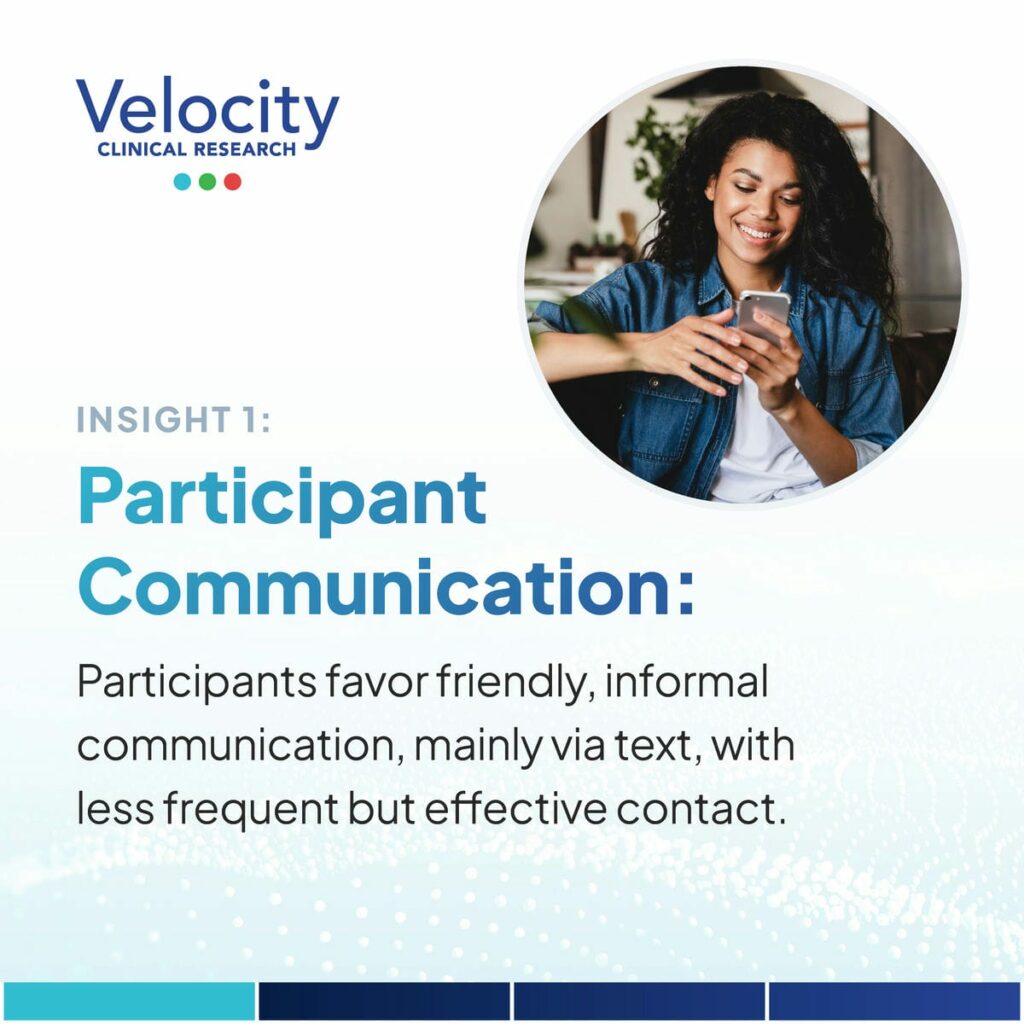Velocity Clinical Research maintains a Participant Advisory Committee (PAC) — a diverse mix of current and past trial participants across the U.S. The PAC’s job? Providing participant input to fine-tune the clinical research process.
In this piece, we dig into highlights from PAC’s recent meetings in March, April, and May 2023. We’ll cover three key topics: participant communication, slashing no-show rates, and refining informed consent.
Participant Communication
Style and Mode: Friendly and informal over professional and formal was the winner here. The ideal balance? Be personable, but know your medical facts. Among PAC members, text messaging was the preferred communication method, with 50% voting for it, beating out email (27%) and phone calls (18%).
Contact Frequency: Less is more. Participants responded best to fewer attempts at contact, preferring the “1-2 attempts” (50%) over the “Call until you reach me” (25%) and “3-4 attempts” (12%). Text and email scored higher for their no-fuss decline or opt-out options. Voicemails? Not so popular.
Screening Process: Two-thirds of PAC members preferred a quick initial phone call plus an online screening form over phone-based screening. The hybrid model – a brief call followed by an in-depth online pre-screener — also received nods of approval.
Appointment Reminders: Text confirmations and reminders are ideal. The PAC unanimously backed sending text-based confirmation links for easy attendance confirmation or opt-outs. Text reminders a week, a day, and four hours pre-appointment were seen as no-show reducers.
Reducing No-Shows
Stressing Compliance: The PAC discussed the need for enforcing protocol adherence to reinforce data quality. How would they improve adherence? Incentives. For instance, an extra $50 for 80%+ compliance/adherence or a $25 “first appointment” incentive irrespective of randomization.
Incentives and Text Reminders: For boosting turnout, the PAC suggested the clever idea of mentioning incentives (listed above) in the pre-appointment text reminders. Non-monetary incentives like lunch or gas cards also got a thumbs-up.
Improving Informed Consent
Pre-Appointment Files: Participants wanted informed consent docs before the first appointment. No rushing, no pressure – just time to read at leisure.
Optimal Reading Environment: Private exam rooms topped waiting rooms for reading informed consent documents, given their distraction-free atmosphere. The idea of a condensed, two-page quick-reference version of the document also came up.
The PAC’s insights offer a roadmap to anyone looking to uplift the participant experience. Incorporating these preferences in communication, slashing no-shows, and refining the informed consent process can lay the foundation for a participant-centric approach to clinical trials, benefiting both current and future generations.

